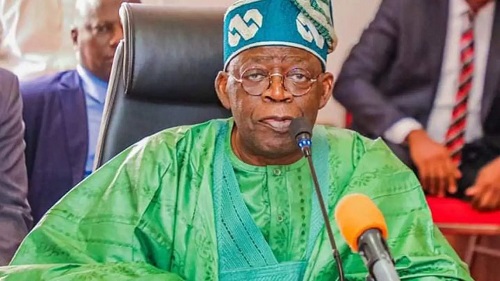The President, Asteven Group, Council on Renewable Energy in Nigeria (CREN) and Founder, Asteven Renewable Energy Institute, Dr Sunny Akpoyibo, has called on President Bola Tinubu to declare a state of emergency on practical solar energy training for at least 500 youths across all the local governments in the country in the next four years.
Akpoyibo, who made the call in an interview with journalists in Abuja Monday, said that the idea would not only address energy challenges in the country but would also provide more than 20 million jobs for Nigerians.
He said this can be achieved through proper partnership and inclusion of private sector players in the industry.
The CREN and Asteven Group President urged the Federal Government to partner with various stakeholders such as states, National Assembly, non-governmental organisation (NGOs), non-profit foundations, oil companies and private companies in sponsoring youths to save the country billions of naira that would have been exported out of the country.
He said: “According to recent report by economic analysts and experts, Nigeria is projected to record increase in unemployment to more than 40% in 2023 posing as a great challenge to the new government of President Bola Ahmed Tinubu who was sworn into office 29th May, 2023.
“This is a red alert comparing the resultant effect of unemployment in the country from 2018 when it was almost half the current speculation giving rise to insecurity and unprecedented high rate of crime in the country majorly perpetuated by the youths.
“It is also imperative to emphasise that the projection may be far less than what will be recorded in the days ahead due given the removal fuel subsidy.”
Akpoyibo noted that even though Nigeria with a population of over 100 million youths and one of the most endowed countries with solar energy in the world, still ranks very low in complying with the energy transition programme in the areas of technical expertise and product manufacturing.
He said: “A large population of Nigerian youths are ignorant of the industry and have been unable to harness the enormous opportunities in the industry giving the billions of dollars invested into the sector. So many youths are looking for white collar jobs when they can be financially independent through the acquisition of skills in the solar energy industry.
“The numerous solar energy projects implemented by the previous administration of Gen. Muhammadu Buhari even though well intended were short lived due to the lack of sustainability plan that would have mitigated the billions lost in deployment of solar projects such as Solar Naija Home, Energizing Education, Energizing Markets, Solar off-grid etc.
“Even the government agencies executed projects that were without provision for equal deployment of technical skills that would ensure sustainability and maintenance of such projects. How can solar companies take people from Akwa Ibom to go and execute a solar project in Kano with little or no skilled indigenes? Already, such a project cannot be sustainable as you don’t expect the expert to travel from Akwa Ibom to Kano anytime there is a problem with the system.
“But this is because most local areas within the country lack skilled workers who are mainly situated within the cities and urban areas. As soon as a project is commissioned, the contractor leaves and never returns to that location ever again leading to dilapidation of the project.”
The renewable energy consultant said Nigeria is currently generating just 37 megawatts of solar energy when it holds the potential for 500,000 megawatts, and estimated billions of dollars in economic value to equip the youths to become empowered and economically viable within their immediate communities.
“This is the future that government must prepare our youths for rather than the growing buying of motorcycles, taxis and others that can be lost if damaged yet a skill can never be lost.
“In the days ahead as our new President Bola Ahmed Tinubu makes efforts to increase employment in the country, there must be a deliberate and holistic attention to private partnership in training of the youths. It is imperative to ensure that all solar budgetary arrangements must capture training of indigenous youths who will ensure sustainability of these projects.
“Nigeria is properly positioned to lead the energy transition programme in Africa to such extent that international organizations like the World Bank, Africa Development Bank, European Development and so many others will commit to supporting more solar projects in the country.
“Everyone depends on energy no matter where they are, and even those in the rural areas are migrating to the urban areas due to lack energy. But energy can be taken to every locality and efficiently sustained with adequate skills. This will address the country’s energy shortfall.
“Asteven Group is one of the pioneer indigenous solar companies that manufactured world class products for the Nigerian market creating thousands of jobs through vendors and merchants of our products. Over the past 15 years, the company has operated across the six geo-political zones in the country and around five African countries deploying cutting edge solar technology.
“It is in the course of our business expedition that we discovered the lack of skills in the solar industry in the country with largely 98% of solar projects outsourced to foreigners even with billions voted by government at federal and state levels, and bulk of the money getting repatriated by foreigners to their own countries without adding much value to our economy,” he added.



